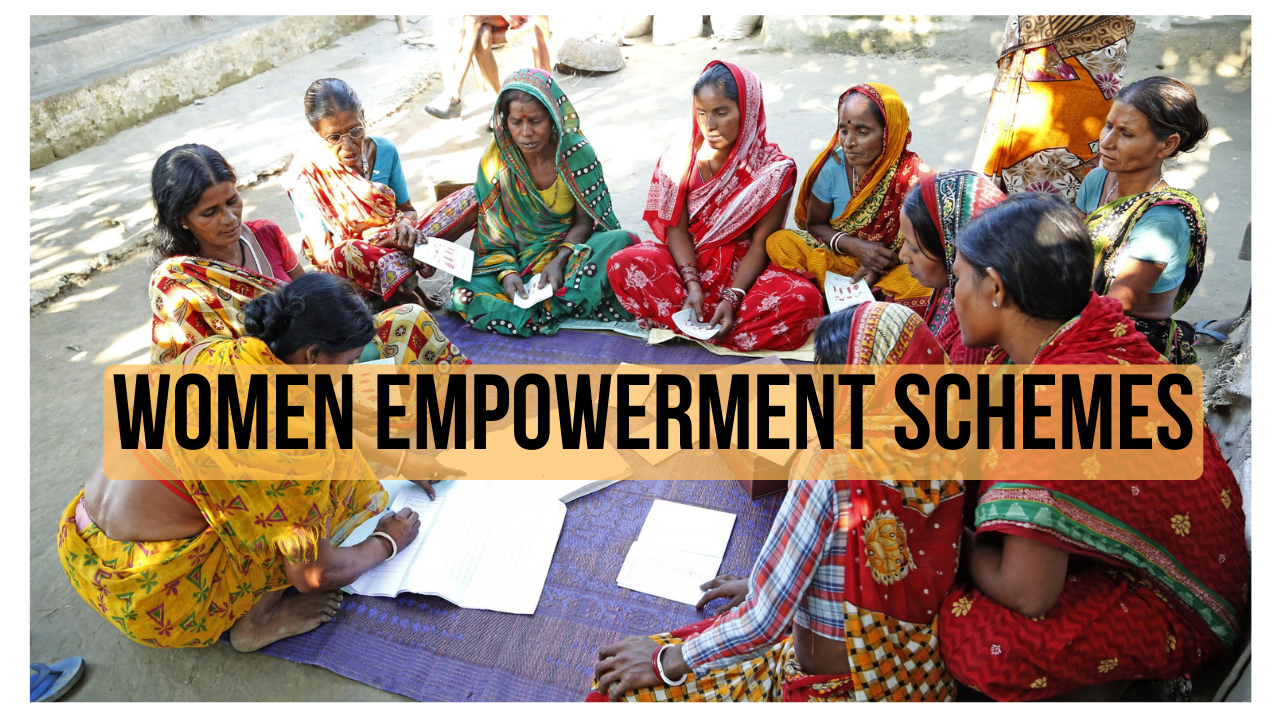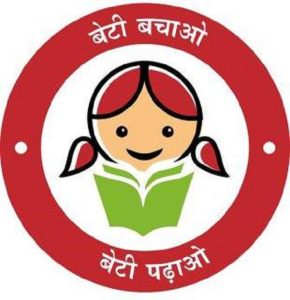Women Empowerment Schemes in India 2025 offer financial assistance, skill training, and digital literacy. These Women Empowerment Schemes aim to boost self-reliance and inclusivity.

Women Empowerment Schemes: Women empowerment is a crucial aspect of societal progress, emphasizing inclusivity and equal participation in decision-making processes. It aims to provide women with the same opportunities for growth and development as men while challenging gender bias. Article 15(3) of the Indian Constitution emphasizes the welfare of women and children, allowing the State to make special provisions for their benefit. Recognizing the significance of this cause, the Ministry for Women and Child Development partnered with Facebook on November 19, 2019, to enhance digital literacy and online safety under the “We Think Digital” campaign.
In India, women and children hold a vital place in society, yet they remain vulnerable to various challenges. To address this, the government has introduced a range of women empowerment schemes, all listed under the Ministry of Women and Child Development. These schemes play a pivotal role in various competitive examinations, including the UPSC and other government exams.
The Central Government, in collaboration with State Governments, has launched numerous schemes dedicated to empowering women across India. These initiatives are designed to provide women with equal access to resources, opportunities, decision-making power, and capacity building. Women empowerment can be achieved through education, skill development, and increasing employment opportunities, among other measures. Let’s explore some of the key government schemes for women empowerment.
|
Women Empowerment Schemes in India |
||||
| Scheme Name | Beneficiaries | Target Sector | Who are Eligible | Launch Year |
| Beti Bachao Beti Padhao Scheme | Primary Group, Secondary Groups, Tertiary Groups | Women and Child Welfare | Family with a girl child below 10 years of age, and a Sukanya Samriddhi Account in a nationalised bank. | 2015 |
| One Stop Centre Scheme | Women affected by violence | Women and Child Development Ministry | All women affected by violence, irrespective of age, class, caste, region, religion, or marital status. | 2015 |
| Women Helpline Scheme | Women or girls facing violence | Women and Child Development Ministry | No specific data available. | 2016 |
| UJJAWALA | Women and children vulnerable to trafficking | Women and Child Development Ministry | To prevent trafficking and provide rehabilitation services. | 2016 |
| Working Women Hostel | Working Women | Women and Child Care Development Ministry | Women whose husband/family doesn’t reside in the same city, and those undertaking training for a job. | 1972-73 |
| SWADHAR Greh | Women in distress | Women and Child Development Ministry | Women aged 18 years or above. | 2018 |
| Support to Training and Employment Program for Women (STEP) | Marginalised rural and urban women | Women and Child Development | Women aged 16 years or above, Institutions/NGOs registered under specific acts. | 1986-87 |
| Nari Shakti Puraskar | Individuals/institutions promoting women’s progress | Women and Child Development | Individuals and institutions working for women’s development. | 2016 |
| Mahila Shakti Kendras (MSK) | Rural women | Women and Child Development | Must be a resident of India. | 2017 |
| NIRBHAYA | Women’s safety | Women and Child Development | Women and Girl children | 2012 |
| Mahila E-Haat | Women entrepreneurs, SHGs, NGOs | Women and Child Development | Women entrepreneurs must be Indian citizens and sell legal products. | 2016 |
| Mahila Police Volunteers | Indian women | Ministry of Women and Child Development and Home Affairs | Age above 21, 12th-grade certificate, local language proficiency, no criminal record, not a member of any political party. | 2016 |
In the lead-up to International Women’s Day 2025, celebrated annually on 8th March, India has witnessed a wave of initiatives and campaigns aimed at promoting women’s empowerment and gender equality. The official theme for this year, “For ALL Women and Girls: Rights. Equality. Empowerment.”, reflects a bold call to action for dismantling systemic barriers and fostering inclusive growth.
A key highlight in 2025 is the 30th anniversary of the Beijing Declaration and Platform for Action, a landmark global commitment to women’s rights. India has reaffirmed its dedication to these principles by intensifying focus on youth leadership, equal access, and social inclusion—with adolescent girls and young women at the forefront of transformational change.
On March 3, 2025, Prime Minister Narendra Modi launched a nationwide call encouraging women from all backgrounds to share their inspiring stories on the NaMo App Open Forum. This initiative seeks to amplify women’s voices and recognize their contributions to society. In a symbolic gesture of empowerment, selected women were invited to take over the Prime Minister’s social media handles on March 8, allowing them to share their journeys and messages directly with the nation.
The year also saw accelerated efforts in digital literacy, healthcare, financial inclusion, and safety, backed by legislative reform and grassroots initiatives. Programs like Nari Adalat are being scaled to more gram panchayats, and One Stop Centres under the Nirbhaya Fund have expanded their reach, offering crucial support to survivors of violence.
With these recent developments, women’s empowerment in India is gaining momentum and receiving the attention it deserves. Through financial inclusion, digital upskilling, and innovative initiatives like the all-women cab company, India is taking substantial strides toward creating an equitable and empowered society for women.
Women Empowerment Schemes in India can be categorized into two main groups:

The primary objectives of Women Empowerment Schemes are:
Various women empowerment schemes exist, including:
To bridge the gender gap and promote inclusive growth, the Government of India has launched numerous women-centric schemes. These initiatives aim to empower women socially, economically, and digitally across urban and rural landscapes. Here is a comprehensive overview of key women empowerment schemes launched or continued by the Government of India in 2025:
| List of Women Empowerment Schemes in India 2025 |
||
|---|---|---|
| Scheme Name | Objective | Key Features |
| Sukanya Samriddhi Yojana (SSY) | Financial security and education for girl children | 8.2% tax-free interest, u/s 80C deduction, use for education/marriage |
| Lakhpati Didi Scheme | Financial independence for SHG women | Empower 2 crore women to achieve over ₹1 lakh in savings |
| Drone Didi Scheme | Drone pilot training for SHG women | Train 15,000 women for drone-based services and digital land mapping |
| Mission Indradhanush | Health and immunization | Full immunization for pregnant women and children |
| Mudra Yojana | Access to capital for women entrepreneurs | Collateral-free loans up to ₹20 lakhs under PMMY |
| TREAD Scheme | Promote women entrepreneurship | Govt. grant up to 30% of ₹30 lakhs, rest through NGOs & banks |
| Ujjwala Yojana | Clean cooking fuel for rural women | Free LPG connections and subsidised refills for BPL households |
| Standup India Mission | Support SC/ST and women-led enterprises | Loans from ₹10 lakhs to ₹1 crore for setting up new businesses |
| PMAY (Urban/Rural) | Secure housing with women’s ownership | Preferential allotment of houses in the name of women |
| Women’s Helpline – 181 | Emergency support for women | 24×7 toll-free helpline for distress and violence-related support |
| STEP Initiative | Skill development and employment | Institutional training for employability and entrepreneurship |
| Mahila E-Haat Scheme | Digital marketing platform for women entrepreneurs | Online marketplace to showcase and sell women-made products |
| Mahila Samman Savings Certificate | Small savings scheme for women | Fixed 7.5% interest on ₹2 lakh deposit for 2 years at post offices |
| Mahila Shakti Kendras (MSK) | One-stop support centers for women | Provide skill training, digital literacy, and employment assistance |
Women’s empowerment in India is not a new concept—it is deeply rooted in ancient Indian civilisation, where women were revered and respected. However, centuries of invasions, patriarchal systems, and systemic oppression have pushed women into the margins of society. Today, empowering women has become not only a matter of justice but also a crucial step toward national development.
Economic Growth: Women represent nearly 50% of the population. Their inclusion in the workforce can significantly boost the country’s GDP.
Education and Awareness: An educated woman uplifts families, builds better communities, and contributes to nation-building.
Poverty Reduction: Empowered women with economic independence can uplift entire families out of poverty.
Social Justice: Empowering women is essential for achieving constitutional equality and breaking the chains of deep-rooted patriarchy.
Health and Wellbeing: Empowered women often lead to healthier families, as they prioritize nutrition, healthcare, and hygiene effectively.
To support this transformative journey, the Government of India has launched several schemes that foster women-led development across diverse sectors.
The Sukanya Samriddhi Yojana aims to support a girl child’s education and future financial needs through long-term savings.
Women part of Self-Help Groups (SHGs) can benefit from this scheme by building financial capital of over ₹1 lakh.
The scheme offers an online platform for women to sell handmade products, boosting entrepreneurship and local trade.
It offers 7.5% annual interest on fixed deposits up to ₹2 lakhs exclusively for women, encouraging secure savings.
Yes, PMAY ensures house ownership in a woman’s name, supporting financial security and social dignity.
It provides loans from ₹10 lakh to ₹1 crore for women starting new ventures, promoting inclusive economic growth.
<div class="new-fform">
</div>